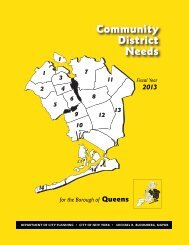Palm Oil Buyers Scorecard
WWF_Palm_Oil_Scorecard_2016
WWF_Palm_Oil_Scorecard_2016
Create successful ePaper yourself
Turn your PDF publications into a flip-book with our unique Google optimized e-Paper software.
The journey<br />
toward<br />
sustainable<br />
palm oil<br />
The threat of unsustainable palm oil to people, nature and the environment is so great<br />
and so urgent that we need a response that will transform the whole global industry.<br />
While the RSPO is the best mainstream solution to overall industry transformation,<br />
there are other stages on the journey to sustainability.<br />
The journey begins with eliminating poor practice and achieving legality in palm oil<br />
production. That is where national governments in palm oil producing countries like<br />
Indonesia and Malaysia need to be better at enforcing their own laws and systems (see<br />
the Tesso Nilo story on page 56 for an example of what happens when that fails). Both<br />
Indonesia and Malaysia now have national standards for palm oil which are broadly<br />
aligned with the legal minimum in each country. Both countries need to enforce<br />
these standards rigorously. And both standards also need to address sustainability<br />
comprehensively. High conservation values must be protected and communities<br />
must be asked to give their free, prior and informed consent for palm oil. And both<br />
standards need to include supply chain controls before they can be considered as<br />
credible international standards for palm oil buyers.<br />
Once the worst practices are eliminated, the industry must then show that it is using<br />
better practices by achieving RSPO certification. Certification is important because<br />
it requires independent verification of best practices and does not rely on companies’<br />
own reporting or paid consultants. But the journey doesn’t end there – innovators and<br />
leaders need to show the industry where it needs to go next by building on the RSPO to<br />
achieve best practice. Two initiatives doing just that are RSPO NEXT and POIG. WWF<br />
supports these initiatives because we believe they have the potential to deliver real<br />
change in the industry.<br />
<strong>Palm</strong> <strong>Oil</strong><br />
Innovation Group<br />
The <strong>Palm</strong> <strong>Oil</strong> Innovation Group, which Greenpeace, Rainforest Action Network, Forest<br />
Peoples Programme, WWF and progressive grower members of the RSPO founded<br />
together, works to build on existing RSPO standards, systems and commitments and<br />
put innovative best practice into action.<br />
POIG has developed a charter standard and is currently looking to build independent<br />
third-party verification into the system in order to demonstrate credible proof of<br />
change on the ground.<br />
See WWF’s position on POIG.<br />
RSPO NEXT<br />
RSPO NEXT, launched in 2016, is a voluntary add-on to the RSPO’s existing Principles<br />
and Criteria, defining the next steps companies can take on the journey to palm<br />
oil sustainability. It provides a further set of best practices that members can be<br />
consistently and independently measured against.<br />
11 WWF PALM OIL BUYERS SCORECARD 2016




